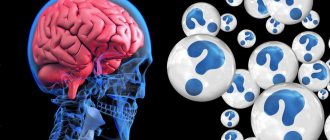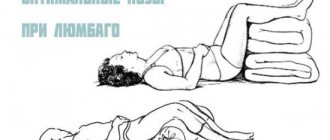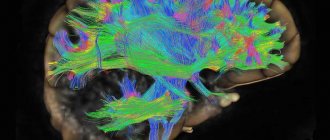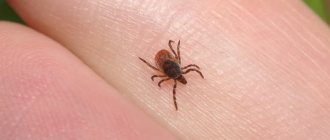What is Alzheimer's disease? This is a demented condition in which rapidly progressive dementia develops. The disease is accompanied by a sharp decrease in intellectual abilities, a change in the patient’s character, and a gradual loss of all existing skills and memory. According to statistics, this disease can occur in older people, and it is in fourth place among all causes of death in elderly patients. Let's take a closer look at what is called Alzheimer's disease, consider the causes and treatment of this disorder.
Why does dementia develop?
To date, the causes of Alzheimer's disease have not been studied. There are only a few theoretical assumptions according to which degenerative changes in brain cells arise as a result of a hereditary predisposition to this disease.
The following factors can trigger its onset:
- old age;
- a history of traumatic brain injury;
- female;
- tendency to depression;
- low intelligence.
If a person has one or more factors, including hereditary ones, then the likelihood of brain dystrophy increases many times. The development of senile dementia occurs against the background of permanent or transient disorders accompanied by insufficient blood supply, most often these are:
- high levels of low-density cholesterol in the blood;
- atherosclerosis of blood vessels in the brain and neck;
- disturbance of sugar metabolism;
- diseases of the heart, blood vessels, respiratory organs or hematopoietic system with the development of failure.
A high risk of developing this disease exists in people with excess body weight, low motor and intellectual activity, and an addiction to coffee and smoking.
The theory of multifactorial development of the disease is generally accepted, but it is believed that heredity plays a decisive role in the development of Alzheimer's disease.
Causes
The exact causes of the disease are not known. Previously, it was thought that the main cause was a disruption in the production or massive destruction of the neurotransmitter acetylcholine. However, drugs based on it did not cure the patient. The following possible reasons are currently identified:
- Genetic predisposition;
- Heavy metal poisoning;
- Head injuries;
- Hypothyroidism;
- Malignant and benign neoplasms;
- Concomitant genetic diseases (Down syndrome);
- Age.
Methods of modern assistance
To the question of whether Alzheimer's disease can be treated, the answer will be negative. Modern medicine has not yet invented effective means to completely defeat this serious disease. But there are some developments in the form of synthesized medications that can significantly alleviate the severity of symptoms and preserve for as long as possible the basic skills and knowledge that allow the patient to care for himself and do everyday activities.
At the moment, only a specialist knows how to treat Alzheimer's disease. Therefore, at the first signs of a pathological abnormality, you should immediately contact a neurologist .
Comprehensive and complete treatment of such a patient should solve the following problems:
- correction of somatic pathologies (use of all methods to establish stable remission or cure diseases with vascular damage);
- restoration of normal nutrition of brain cells;
- pathogenetic effects on the process with drugs;
- elimination of signs accompanying the disease;
- Providing psychological assistance to a person suffering from dementia and his relatives.
Your doctor may recommend a number of medications to help with Alzheimer's disease.
Acetylcholinesterase inhibitors
The fact is that even in the last century, the fact of a decrease in acetylcholine in this disease was established. This neurotransmitter plays a significant role in the transmission of impulses between neurons, and acetylcholinesterase helps break it down. Blockade of this substance not only leads to the restoration of nerve conduction, but also reduces the formation of amyloid. As a result, the patient's memory improves and cognitive functions are restored.
There are several options for modern inhibitors, and if one of them is not suitable for a person, another option is recommended. The effectiveness of each drug is considered based on the results of its continuous use in the generally accepted dosage for three months. To switch to another drug, you should take a break from three days to a week, since it is during this period that the active substance is eliminated from the body.
Contraindications to the use of acetylcholinesterase inhibitors are the presence of bronchospasms, intestinal obstruction, epileptic convulsions, and bradyarrhythmia.
New drugs
If there is a severe stage of the disease, the patient is also prescribed the drugs described above. However, there is something new in the treatment of Alzheimer's disease. Not long ago, the drug Memantine appeared, which acts on the mechanism of development of dementia at its final stage . It has already been used quite successfully in Europe and the United States, and is recommended for use in Alzheimer's disease by the National Institute on Aging in the United States.
This medicine has fewer side effects, but causes some agitation, and is therefore recommended to be taken in the afternoon. It should not be used for kidney diseases with the development of failure of these organs.
Antidepressants and neuroleptics
Symptomatic treatment of the disease involves the use of antidepressants, which are recommended only by a specialist. The type and dosage of the drug depends entirely on the severity of signs of depression and the degree of development of dementia. For mental disorders in the patient, antipsychotics are used.
Aids
Adjuvant treatment consists of stopping some abnormalities at an early stage of the disease, before using enzyme inhibitors. These are drugs for accelerating nerve transmission at the synapse, drugs for improving blood circulation in small vessels (vasodilators and antithrombotics). Ginkgo biloba, calcium antagonists, and medications that improve the nutrition of brain cells (Nootropil, Cerebrolysin) help well.
Medicines for Alzheimer's disease
At home, treatment of hypothalamic disease is possible only if there is someone to look after the patient. Otherwise, he must be in a hospital. As for drug therapy, the reviews of doctors around the world are clear - there is simply no drug that can cure the disease.
However, to treat cognitive impairment in this disease, cholinesterase inhibitors are often used, such as:
- Donepezil;
- Galantamine;
- Rivastigmign.
The medications are taken continuously and the dosage needs to be increased over time, which means that monitoring by a specialist must be constant.
In some cases, the drug Cerebrolysin is prescribed, but it does not remove the disease, but slows down its progression and reduces the severity of symptoms.
Complex treatment includes the use of: antioxidants, substances that can improve blood circulation, substances that improve microcirculation and hemodynamics. Appointments are made by neurologists and psychiatrists.
Help from a psychologist
An equally important aspect of treatment is the work of the psychologist with the patient and his relatives.
It is important to understand that the death of brain cells in Alzheimer's disease does not develop instantly, and for quite a long time the patient is able to adequately assess the processes that are happening to him. At the same time, the deterioration of his memory and certain skills is accompanied by depressive states, anxiety and fear, and confusion. Awareness of this brings a lot of grief for the patient himself, as well as those close and dear to him. A decrease in vitality also leads to the progression of the disease.
The doctor, while taking antidepressants to the patient, will help cope with the depressed state, explain the possibility of fighting the disease, and support the person in his desire to remain competent for as long as possible.
Relatives are recommended to try to provide the patient with maximum independence in the first stages so that he does not feel helpless.
In addition, the doctor provides assistance at a time when a seriously ill patient places a burden on the shoulders of relatives in the last months of the disease.
Psycho-emotional intervention
Used as an additional method. The general condition does not improve, however, individual problems such as incontinence may be alleviated. This therapy helps patients adapt to the disease. In the early stages, memory therapy is carried out: patients discuss the events they have experienced, using photographs, objects, favorite music, videos and other well-known objects. However, this method affects the patient individually. The method of simulating presence is based on attachment theory: audio and video recordings with the voices of family and friends are used. In patients undergoing this therapy, feelings of anxiety decrease and behavior becomes calmer. Stimulating methods include music therapy, art therapy, communication with animals, and physical exercise, which have a positive effect on behavior and mood.
Traditional treatment
In case of Alzheimer's disease, treatment with folk remedies can alleviate the patient's condition to some extent, but it cannot completely rid him of this disease. The advisability of using such methods of assistance should be discussed in advance with your doctor.
- Healers recommend taking soy-derived lecithin daily. The daily dosage should be 3 grams of this substance.
- Ginseng root and schisandra berries help to increase the overall tone of the body, if you take them in equal proportions, five grams each. To prepare, place the mixture in a saucepan, add a liter of boiling water, and then cook for at least 15 minutes. Take throughout the day, dividing the entire product into equal doses. This decoction is not recommended for use in people with a tendency to high blood pressure.
- If a patient's sleep is disturbed or irritability appears, then he is recommended to use motherwort, the tincture of which should be taken daily. You need to take one large spoon of herb and pour it with a glass of vodka. Place in a container with a closed lid and leave for ten days. While the tincture is being prepared, shake it from time to time. After this, you need to strain the product and pour it into a glass bottle. Keep refrigerated. In order to improve the functioning of the nervous system, it is recommended to take 40 drops of motherwort, dissolving them in a quarter glass of warm water, two to three times a day.
What to use?
The use of certain medications depends on the stage and symptoms of the disease. For any form of Alzheimer's, drugs called cholinesterase inhibitors are used.
Cholinesterase is a synthetic enzyme that breaks down choline, due to which it actively acts on brain cells.
Cholinesterase inhibitors are heavy drugs with many contraindications and side effects. They are not sold without a prescription, and any excess dosage may worsen the patient's well-being.
"Exelon"
The most popular drug for the treatment of Alzheimer's, which is available in the form of capsules, solution and transdermal system. Cost - from 1400 to 4000 rubles depending on the type of product.
"Aricept"
Contains donepezil hydrochloride and is suitable for the treatment of all forms and stages of Alzheimer's and dementia. However, it has a minus - unwanted effects. Moreover, the drug is included in the group of the safest medications.
The most common side effects: cramps, insomnia, nausea, digestive problems, headaches, weakness and fatigue.
However, you can use analogues that differ in action and may not cause side effects: Alzepil, Yasnal, Almer, Palixid-Richter. The cost of drugs starts from 750 rubles and reaches 2000 rubles.
"Reminyl"
Prescribed for mild to moderate Alzheimer's disease. Can be used for chronic circulatory disorders. Also suitable for treating pregnant women, but should not be used during breastfeeding. Among the analogues are: “Nivalin”, “Galantamine-Teva”, “Galnora”, “Donepezil”.
Measures to prevent the development of pathology
For anyone approaching 50 or 60 years of age, information on how to prevent Alzheimer's disease is important. Prevention of the disease consists of the following actions:
- It is necessary to constantly monitor blood sugar levels and blood pressure readings. If a deviation is detected, the condition and metabolism should be stabilized with medication.
- Preventing Alzheimer's disease will help to maintain a proper daily routine, eight hours of sleep every day, and the absence of psycho-emotional and physical stress.
- Be sure to do daily stretches and take walks in the fresh air. Swimming helps improve the tone of the vascular wall and muscles very well . Restores emotional balance and improves the condition of all yoga systems.
- It is useful to constantly train your intellectual and mental abilities. To do this, you need to learn poetry, solve crosswords and puzzles, and make puzzles.
- You definitely need to reconsider your diet. The diet should include as many polyunsaturated fatty acids as possible. And dishes high in cholesterol should be excluded from the diet (fatty meat, offal, fast food, lard, eggs). The table should have fresh fruits and vegetables, seafood, and olive oil.
How can you avoid Alzheimer's disease? You should get rid of bad habits, avoid stressful situations, and prevent any possibility of gaining excess body weight.











